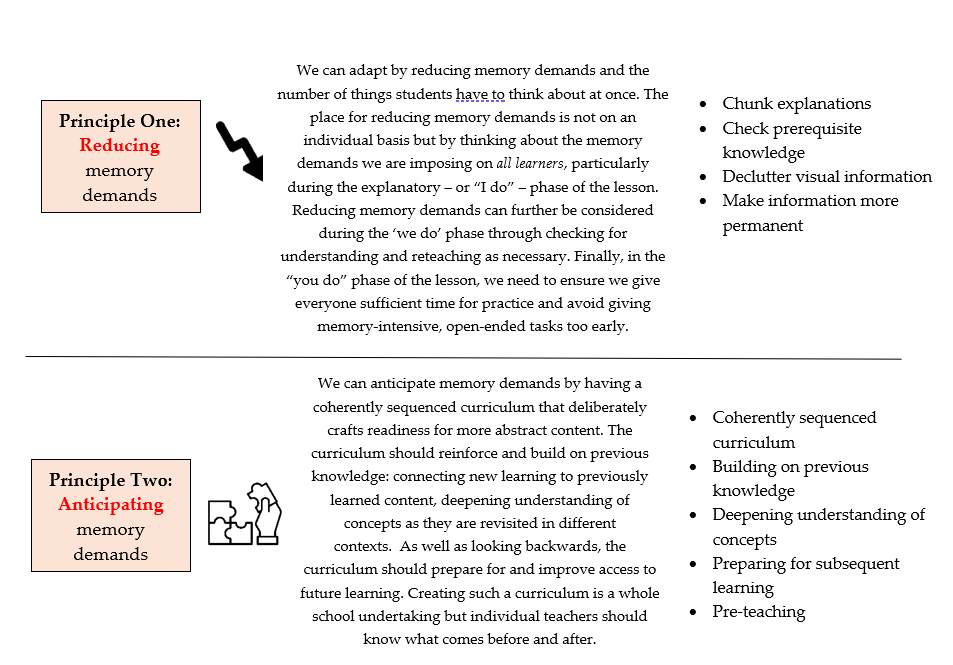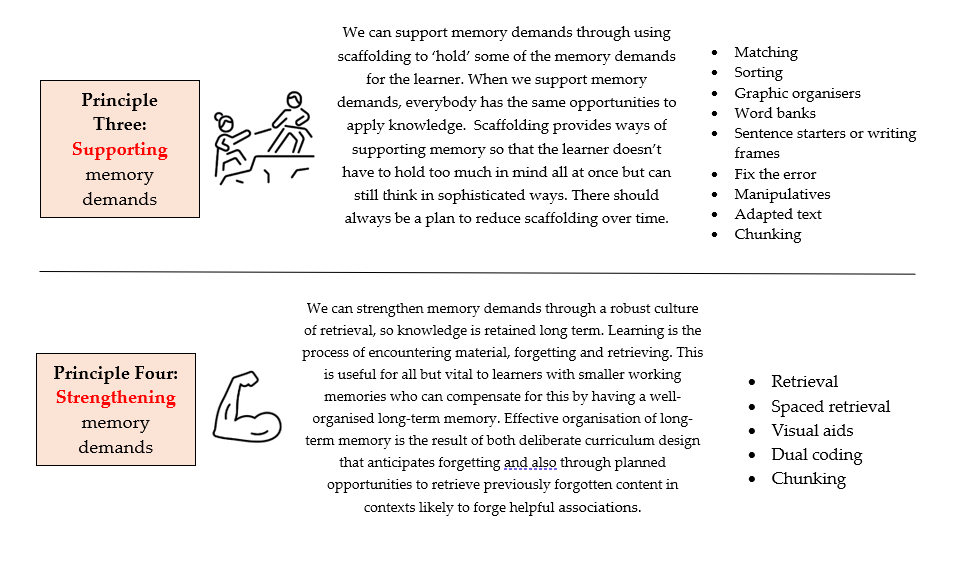- Home
- Curriculum
- Teaching and Learning
Teaching and Learning
Our approach to teaching and learning is informed by Rosenshine’s ‘Principles of Instruction’ and is captured within our Blueprint for Learning. This is woven implicitly into lessons and class teachers will use their professional judgement when planning lessons considering where each learner is on the cycle to ensure tailored provision for all.
Blueprint for Learning:
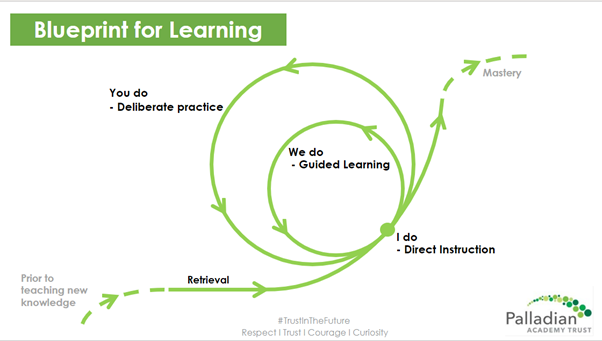
Details
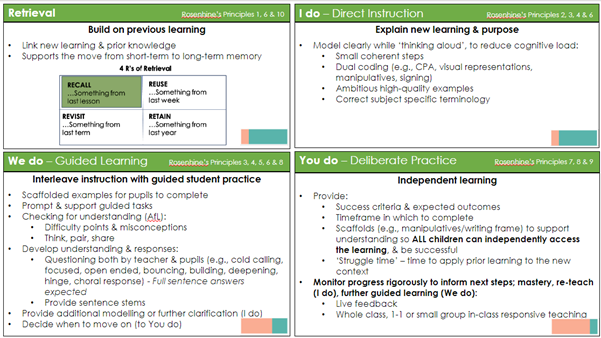
Task Design
Task Design

Task design, in its simplest form, involves providing students with tasks that promote engagement in their learning. Our aim is to provide all children with an inspirational curriculum. Guided by our Blueprint for Learning and Rosenshine’s principles, we intentionally design tasks that go beyond mere 'task completion'. When executed well, effective task design strengthens the connection between instruction, tasks, and assessment. It bridges the curriculum to real-world understanding, ensuring purposeful activities that support effective instruction and ultimately lead to secure knowledge acquisition.
We expect all children to engage in deep thinking during lessons. Therefore, our staff carefully and intentionally design the tasks they provide, recognizing that simply completing an activity does not demonstrate understanding. This process goes beyond simply creating writing tasks or worksheets for labelling; it involves being mindful and purposeful in selecting activities that enable children to practice, attempt, or demonstrate their understanding effectively.
The nature of challenge
While challenge is relative to both the content and the learner, it can be defined as the meeting of prior knowledge in an unfamiliar context.
There is often an underlying assumption that only high-prior attainers should be challenged and this notion disregards the need for all pupils to think hard in the classroom, neglecting the potential of other students who will also benefit from such academic rigour.
At WJS we ensure all pupils are challenged, all pupils think hard and all pupils are subject to our high expectations, tailored to each individual child.
In summary, effective task design is about more than just filling lesson time with activities. It requires a deep understanding of the curriculum, thoughtful planning, and a keen awareness of children’s needs. By integrating these elements, we can create tasks that not only support learning but also inspire and challenge all of our children.
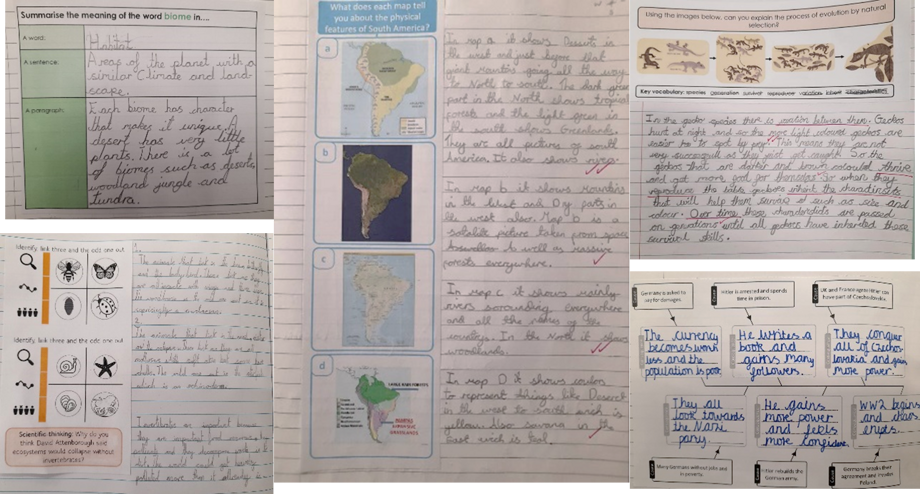
Retrieval

Retrieval Practice is a technique which enables children to recall what they have learnt. It strengthens knowledge retention and encourages learners to engage with and use new skills and knowledge. Retrieval practice tasks give opportunities for children to recall and summarise using their long-term memory. Retrieval practice forms a crucial part of the assessment cycle.
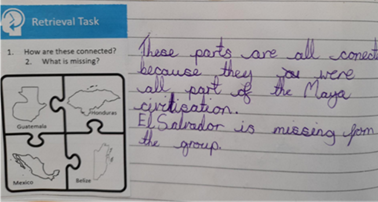
Pedagogical Principles
In addition to our Blueprint for Learning, educators should apply the following core principles
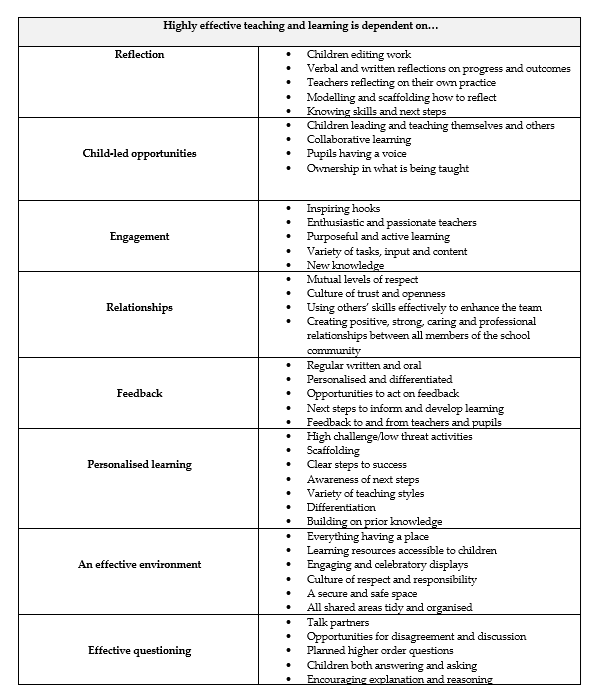
Adaptive Teaching
Adaptive teaching: addressing learning needs without lowering expectations of pupils.
At Widcombe C of E Junior School, we are committed to ensuring that all pupils access a high-quality education tailored to their individual learning needs, while maintaining high expectations for every child.
Our approach to adaptive teaching focuses on addressing diverse learning needs without lowering expectations. Instead of differentiating by adjusting the level of challenge, potentially changing learning objectives or assigning different tasks, we use adaptive teaching to adjust the format, presentation, and scaffolding of tasks and instruction This dynamic approach also involves adapting instruction in real time, based on observed student understanding. By providing the necessary adaptations that support students before, during, and after a task, we ensure lessons are more inclusive by design. This ensures all pupils engage with the same learning objectives while receiving the necessary support to succeed, without compromising cognitive demand.
These principles create an inclusive and supportive learning environment where every pupil is challenged, supported, and empowered to achieve their full potential.
Approach:
Inspired by the ‘four verbs’ method, we ensure our tasks and adaptive practice are both ambitious and accessible. This adaptive teaching framework focuses on four key actions regarding memory demands: reducing, anticipating, supporting, and strengthening the cognitive load students need to manage during learning.
